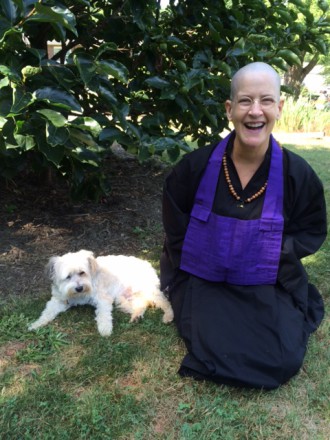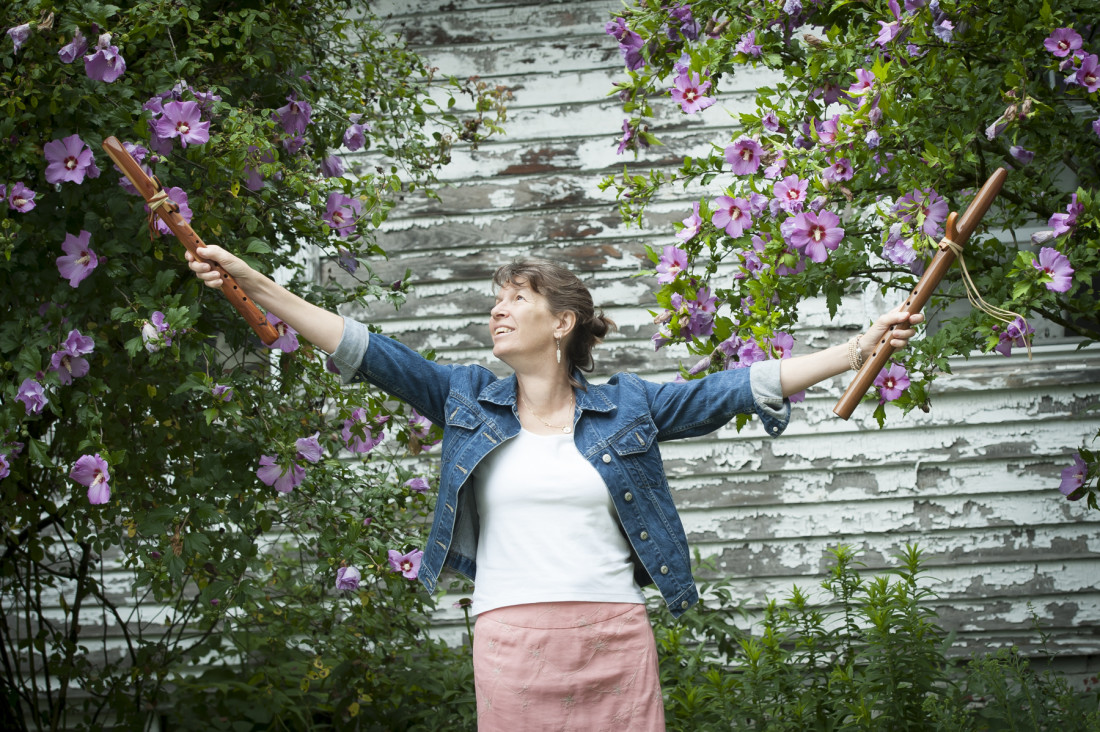As the spirits of our ancestors fill the air and the brain-eating undead of zombie movies entertain us this Halloween, consider a more down-to-earth topic: In Western North Carolina, a number of nontraditional and eco-friendly options have arisen for managing the death process — including green burial, in-home funerals, death doulas and midwives, and conservation burial grounds.
“We’ve been kind of brainwashed to think it [death] is a scary thing,” says Caroline Yongue, director and founder of the Center for End of Life Transitions. “I think it’s because we’ve given death care away; we don’t see it in the home anymore,” she says. Movies and TV play a role, Yongue continues. “You know the music changes when death happens; if there’s a scene at a funeral home, the music is scary,” she says.
In some ways, our current funeral practices are the scary part. According to Final Passages, a nonprofit that advocates for green burial practices, 30 million board feet of hardwoods, 90,272 tons of steel and 2,700 tons of copper and bronze are buried each year with caskets — along with nearly a million gallons of embalming fluid, which commonly contains formaldehyde, a carcinogen that can contaminate soil and groundwater.
“There’s a whole movement afoot to pay more attention to being kind to the earth,” says Michele Skeele, who cites such statistics in her green-burial classes. She’s a creative death educator, death doula, board secretary of the Funeral Consumers Alliance of Western North Carolina and a therapeutic music practitioner. “People are much more aware of where our food comes from and what we are consuming,” says Skeele. “So it just follows through that we would also pay attention to how our bodies are disposed of.”

Cost is another reason people are considering alternatives. On average, traditional funerals cost between $7,000 and $10,000. Jennifer Morgan, board member for the Funeral Consumers Alliance of WNC, says the organization receives many calls from people looking for information on how to have a different kind of funeral. “People may want something a little more simple, a little less expensive,” she says. “We’re very supportive of people doing it the way people want to, returning control of the process over to the families — a consumer empowerment basically.”
One avenue for more control is a family-directed funeral. In a traditional American funeral, a guy comes in with a gurney, picks up your loved one and is gone, says Yongue. “Next time you see [your loved ones], they are embalmed. You can only see them at a certain time, and you have to control your emotions, because there’s a lot of people there,” she says.
A family-directed funeral, on the other hand, is often held in the home. It “is a huge open-heart experience,” says Yongue. “Friends and family may bathe and dress the body, and the place where the body is kept is a sacred space. Family members can come in anytime, day or night, and the grief process transforms much more quickly,” she explains.
Death care midwives and death doulas, such as Yongue and Skeele, are specially trained to help people navigate the practical details of death and dying. They can also suggest ways to honor the spiritual dimensions of the process and provide emotional support.
To Skeele, who home-birthed her children, home funerals and home births are two sides of the same coin. “The idea, for me, about home births and home funerals is that we as families and individuals and communities take back our power to attend to our own — our birthing mothers, our dying family members,” says Skeele.
Interest in green burial is growing, say Yongue and Skeele. Green burials use biodegradable caskets or shrouds, do not embalm the deceased and offer a green or conservation burial ground.
Bury Me Naturally is an Asheville-based business selling biodegradable paperboard caskets and shrouds. Owner Carol Motely got into the death business after her grandmother died and her family could not find a simple pine casket “in the whole dang state.” Her grandmother “was very country; she went out in the woods all the time and had gardens,” says Motely. The funeral homes kept showing the family caskets with velvet taped to it, but Motely kept thinking, “No, this is not what she was about.”
Although most people assume they must hire a funeral home, the state does not mandate it. North Carolina state law allows families to act as their own funeral directors, does not require embalming and allows families to transport their deceased to the crematorium or burial site, Skeele outlines in materials supplied during her workshop, “Creative Death: End of Life Options.”
To accommodate the growing interest in green burial, Yongue is in the process of buying land that will be the first conservation burial ground in North Carolina. This spring, she plans to open the 11-acre Carolina Memorial Sanctuary, which is 15 minutes outside Asheville in Mills River, as a multi use conservation park funded by burial. A conservation burial ground “is basically a park,” says Yongue. “It looks like you’re at a park. There are trails and pathways that are not paved, and alongside [the trails], there will be somebody buried,” she says.
Skeele refers to the “deathing” process. “You talk about birthing. I tell people the same thing happens. We’re just deathing instead of birthing,” she says. “It is part of the same circle of life. We birth, we die and we rebirth.”
More Info
Caroline Yongue
676-9806; ceoltnc@gmail.com,
ceolt.wordpress.com
Michele Skeele
Skeele@morrisbb.net
spiritsongflute.com
Funeral Consumers Alliance of Western North Carolina
avl.mx/1wr
Carol Motely, Bury Me Naturally
caroldmotley@gmail.com
Facebook page: avl.mx/1ws
Green Hills Cemetery
wncgreenburial.com




Just put me in a hole, and sing me a song like this one. It came to me in a dream during which I woke up dead and was convinced I’d made it to some sort of afterlife. Like religion but cheaper, this little tune can help you feel better whether you really believe it or not. Take care … https://soundcloud.com/biff-thuringer/live-forever